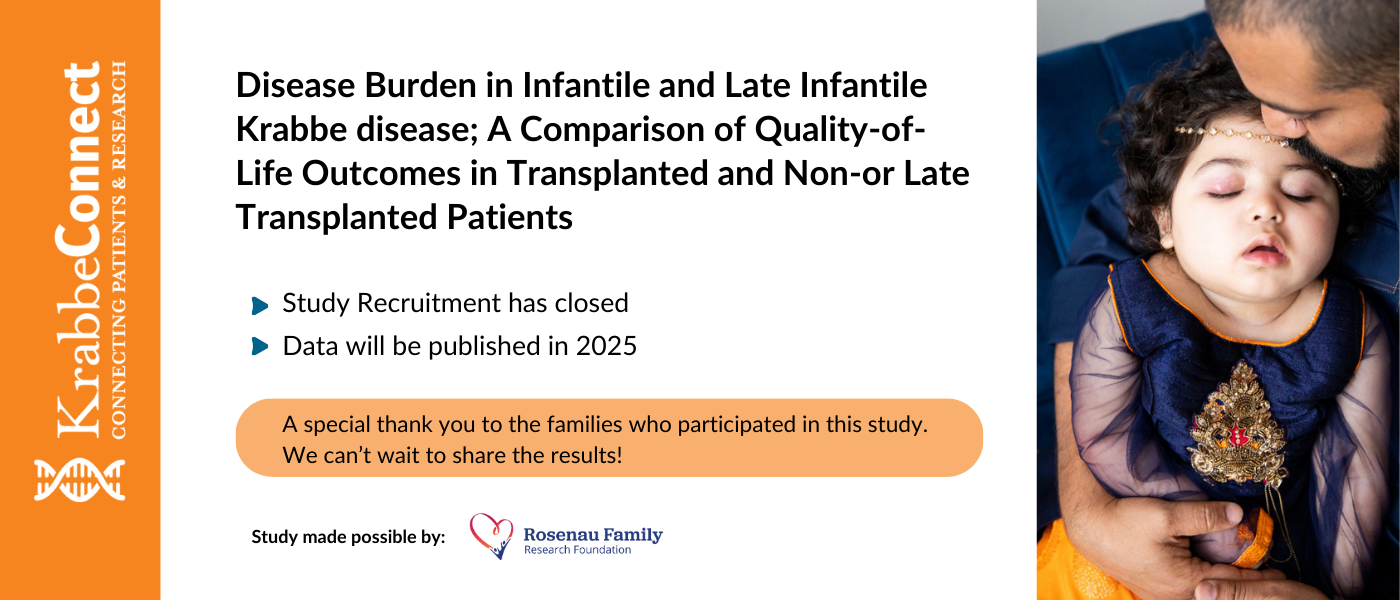
Parent-Reported Disease Burden in Infantile and Late Onset Krabbe Disease; A Comparison of Quality-of-Life Outcomes in Transplant and Non-or-Late Transplant Patients
The study intends to gather valuable insights through parent-reported data, enabling a comprehensive assessment of the challenges faced by individuals living with Krabbe disease. By comparing the quality of life among patients who have received transplants and those who haven’t, the research aims to shed light on potential differences in outcomes, informing future treatment strategies, patient care, and most importantly, the importance of early intervention.
Principal Investigator: Dr. Nicholas Bascou

About Dr. Bascou: He completed his undergraduate studies at the University of Pittsburgh in The Program for the Study of Neurodevelopment in Rare Disorders (NDRD). He then obtained his M.D. at the Cooper Medical School of Rowan University in Camden, New Jersey, and completed his training in internal medicine at Albert Einstein Medical Center in Philadelphia, PA. Dr. Bascou is currently a physician resident in Neurology at Johns Hopkins University.
Who else is part of carrying out this study:
- Engage Health – a health research firm that will conduct the interviews for this study. They will also be tasked with collecting, safely storing, and de-identifying the data.
- Rosenau Family Research Foundation – a privately held non-profit organization responsible for funding this important study.
- Non-profit organizations – KrabbeConnect has reached out to other organizations (for example, Hunters Hope Foundation, United LeukodystrophyThe leukodystrophies comprise a group of progressive, genetic disorders mainly affecting the central nervous system (CNS). Most leukodystophies result from a disruption of the growth of the myelin sh Foundation, Krabbe UK, etc.) to collaborate on outreach efforts for the study. As part of this partnership, these organizations will have the opportunity to be included as contributors to the publication. KrabbeConnect works diligently to partner with other organizations in Krabbe disease.
Who can participate in this study?
To be eligible, participants must meet the following criteria:
- Any patient diagnosed with Infantile or Late Onset Krabbe Disease (IKD/LIKD) who is age 18 years or older — OR
- The parent/legal guardian of a patient diagnosed with IKD/LIKD who is any age
- If there is more than one person in a family who has been diagnosed with IKD/LIKD, they or their parent can participate once for each person diagnosed
- A parent/legal guardian of a child diagnosed with IKD/LIKD who has passed away in the last 8 years may participate
- Participants may reside anywhere in the world but must be able to provide consent in English to be enrolled in the study.
- Must be able to provide proper proof of disease. Proof of disease is a document that states the patient’s name and the diagnosis of IKD/LIKD; ideally, it will be a diagnostic or lab report noting the GAL-C and psychosineDue to the enzyme deficiency in Krabbe disease, psychosine accumulates in the nervous system of affected individuals. Psychosine, a galactolipid, is a cytotoxic type of lipid, that has destructive pr levels, if available (due to the recent nature of psychosine measurements, psychosine levels may not be available). Participants may opt to have KrabbeConnect assist them in obtaining copies of these reports from their healthcare providers.
- Be willing to participate in a web-based survey that will collect demographic, ethnic, and quality-of-life information, which will take approximately 30 minutes to complete
- If desired, participants may also participate in an approximate 90-minute telephone interview. If a parent desires that their affected child (age 8 to 17) participate with them in the interview, they may do so by initialing an assent form.
- Persons who have participated in non-gene therapy clinical research or market research related to potential new therapies are eligible to participate in the research


